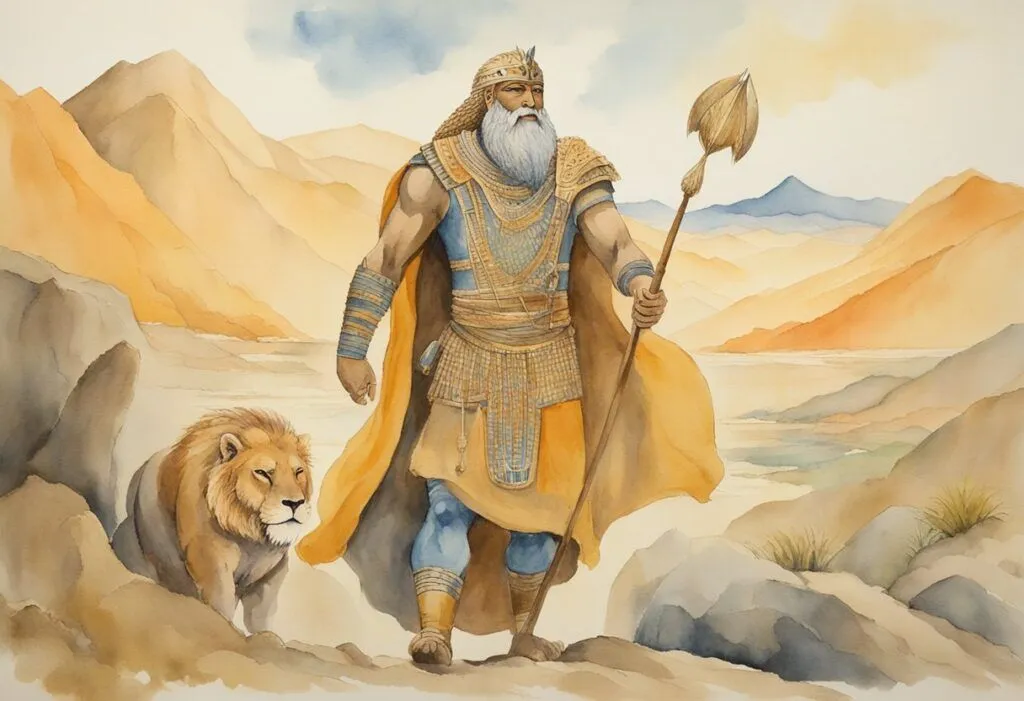yanomami.net – The Epic of Gilgamesh is one of the oldest known pieces of literature, dating back to ancient Mesopotamia. It is a story that has captivated the imagination of people for millennia, detailing the adventures of Gilgamesh, the king of Uruk, a city that flourished around 2100 BCE in what is now modern-day Iraq. This epic poem not only provides insight into the culture and beliefs of the ancient Sumerians but also explores universal themes of friendship, mortality, and the human quest for meaning.
The Story of Gilgamesh
The Epic of Gilgamesh is a complex narrative that combines various Sumerian stories and poems into a single, cohesive tale. The standard version, as compiled by the scribe Sin-leqi-unninni around the 12th century BCE, consists of twelve tablets. The story begins with Gilgamesh, a semi-divine king, who is two-thirds god and one-third man. His tyrannical rule over Uruk leads the gods to create a wild man named Enkidu to challenge him.
The Meeting of Gilgamesh and Enkidu
The initial confrontation between Gilgamesh and Enkidu ends in a fierce battle, which ultimately leads to their mutual respect and a deep friendship. Together, they embark on a series of adventures, including the slaying of the monstrous Humbaba and the Bull of Heaven. These exploits, however, anger the gods, who decide to punish them for their hubris.
The Death of Enkidu
Enkidu is struck with illness and dies, leaving Gilgamesh devastated. This event marks a turning point in the epic, as Gilgamesh becomes obsessed with the idea of immortality. He sets out on a long and perilous journey to find Utnapishtim, the survivor of the Great Flood, who has been granted eternal life by the gods.
The Quest for Immortality
Gilgamesh’s quest is fraught with challenges and tests. He travels to the edge of the world, faces monsters, and endures great hardships. Upon finding Utnapishtim, he learns the story of the Flood and the reasons why the gods decided to grant Utnapishtim immortality. Despite his efforts, Gilgamesh is ultimately denied the gift of eternal life.
Themes and Significance
The Epic of Gilgamesh is rich in themes that resonate across cultures and time. It explores the nature of friendship, the inevitability of death, and the human desire to leave a lasting legacy. The story also provides valuable insights into the Mesopotamian worldview, including their beliefs about the gods, the afterlife, and the relationship between humanity and the divine.
Legacy and Influence
The Epic of Gilgamesh has had a profound influence on literature and culture, serving as a precursor to later epic traditions, such as those found in the works of Homer. Its themes of heroism, the search for meaning, and the acceptance of mortality continue to inspire and provoke reflection.
Conclusion
The Epic of Gilgamesh is more than just an ancient story; it is a timeless narrative that speaks to the human condition. Through the adventures of Gilgamesh and Enkidu, it delves into the depths of what it means to be human, confronting the realities of life, death, and the quest for something greater. As one of the earliest works of literature, it remains a testament to the enduring power of storytelling to explore the complexities of the human experience.
